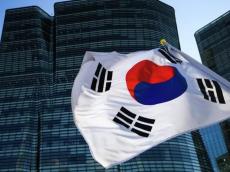|
|
TODAY.AZ / World news
Power vacuum emerges in South Korea after impeachment of president
16 December 2024 [21:46] - TODAY.AZ

By Alimat Aliyeva
The impeachment of South Korean President Yoon Seok-yeol has created a power vacuum in the country, exacerbating political polarization and leading to increased instability.
As a result of the impeachment, South Korea is left without a "strong leader" capable of bridging the deepening political divides. The ongoing uncertainty and instability have raised concerns over the future direction of the country.
The impeachment has created a "power vacuum," as the acting Prime Minister of South Korea, Han Dok-soo, has not received a popular mandate to wield the full powers of the head of state.
To recap, President Yoon Seok-yeol accused the opposition of attempting to incite an uprising, which led him to declare a state of emergency on the night of December 3. However, after a vote in Parliament between December 3 and 4, a resolution was passed demanding that the President lift the martial law. Consequently, Yoon was forced to lift the martial law regime, which lasted approximately six hours.
On December 14, the South Korean Parliament voted to impeach President Yoon Seok-yeol. The Constitutional Court will now decide whether to confirm the impeachment or reinstate him, with the process expected to take up to six months.
Political Crisis: The Road Ahead for South Korea
This unprecedented political turmoil in South Korea raises key questions about the nation's future. The impeachment of a sitting president is a rare event in South Korea's democratic history and signals a deepening divide within the political landscape. The prolonged uncertainty, while unsettling, could also present an opportunity for reform, should the nation find common ground amidst the chaos. Political observers are closely watching how the Constitutional Court's ruling will unfold and whether South Korea can stabilize its leadership in the coming months. For now, the nation is left grappling with political fragmentation, seeking a resolution to this ongoing crisis.
URL: http://www.today.az/news/regions/255655.html
 Print version
Print version
Connect with us. Get latest news and updates.
See Also
- 29 January 2025 [18:19]
Lowering age of criminal responsibility discusses in Sweden - 29 January 2025 [13:00]
Protesters burn down embassies in DR Congo's Kinshasa amid escalating crisis - 29 January 2025 [09:00]
New Shepard flight simulates Moon's gravity for 1st time - 29 January 2025 [08:00]
Uzbekistan plans to increase the share of green energy this year - 28 January 2025 [20:21]
Coca-Cola recalls products in Europe due to high chlorate content - 28 January 2025 [19:40]
460-year-old pub closes in England - 28 January 2025 [15:13]
Serbian Prime Minister Miloš Vu?evi? resigns amid ongoing protests - 28 January 2025 [09:00]
Chinese equivalent of ChatGPT tops some mobile app ratings - 28 January 2025 [08:00]
ADNOC Gas and JERA agree to supply LNG - 27 January 2025 [23:50]
Largest natural skating rink open in the east of Kazakhstan
Most Popular
 Project without demand: why the Crossroads of the World is not interested in Europe
Project without demand: why the Crossroads of the World is not interested in Europe
 How the USSR used the myth of the "Armenian Genocide" for geopolitical purposes
How the USSR used the myth of the "Armenian Genocide" for geopolitical purposes
 Azerbaijan’s evolving role in global energy: Oil, gas, and renewable energy collaborations
Azerbaijan’s evolving role in global energy: Oil, gas, and renewable energy collaborations
 Salah overtakes Henry to move to 7th place on list of all-time English Premier League scorers
Salah overtakes Henry to move to 7th place on list of all-time English Premier League scorers
 Azerbaijan commemorates International Holocaust Remembrance Day
Azerbaijan commemorates International Holocaust Remembrance Day
 Azerbaijani Deputy Foreign Minister visits Qatar for political consultations
Azerbaijani Deputy Foreign Minister visits Qatar for political consultations
 WHO airlifts medical supplies to Tanzania amid MVD outbreak
WHO airlifts medical supplies to Tanzania amid MVD outbreak
